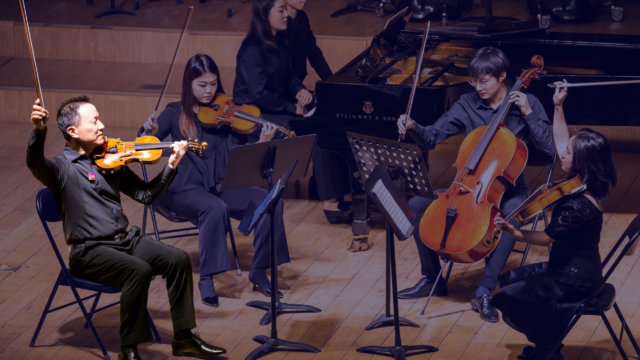Prelude and Table of Contents: Summer 2019
Can music change minds? Can an orchestral score grapple with issues like social justice? Increasingly, orchestras and composers are addressing the fierce urgency of now in the music they play, the programs they present, either directly through explicit programmatic content or more abstractly, with an evocative title or dedication. Context is all. Beethoven originally dedicated his Third Symphony to Napoleon Bonaparte, in tribute to Bonaparte’s soi-disant democratic idealism. When Bonaparte declared himself emperor, Beethoven scratched out the inscription and re-dedicated the work to a more generic hero. Same notes, different message. When composer Julia Wolfe started work on her Fire in my mouth for the New York Philharmonic a few years back, no one could have imagined that an oratorio about the 1911 Triangle Shirtwaist Factory Fire would be stunningly relevant. But as debates about immigration, foreign workers, and labor seized national headlines this January, suddenly a multimedia score about a workplace tragedy in which more than a hundred workers perished—most of them young, female, and recent immigrants—felt ripped from the latest Facebook feed.
This issue of Symphony looks at the recent proliferation of musical works and activities by orchestras that bring forward the often overlooked narratives, identities, and communities that make up America today. As a long-lead publication, many stories in Symphony experience a considerable gestation; articles don’t just happen overnight. Rest assured, no one is looking to ignore tradition and abolish the canon. Rather, orchestras and composers are thinking about the music they love, the legacy they revere, in new and different ways, building on a passionate reverence for the music as a point of departure for multiple dialogues.
Robert Sandla
Table of Contents
- The Score
- At the League
- Board Room
- Currents – by Michael Bronson and Joe Kluger
- Music and Social Justice – by James Chute
- Work in Progress – by Jennifer Gersten
- Come Out and Play – by Brin Solomon
- Instrumental Excursions – by Clive Paget
- Annual Fund
- Coda
Related
Become a member
Thank you for your interest in the League of American Orchestras! We are dedicated to advancing the orchestral experience for all.
Join Now